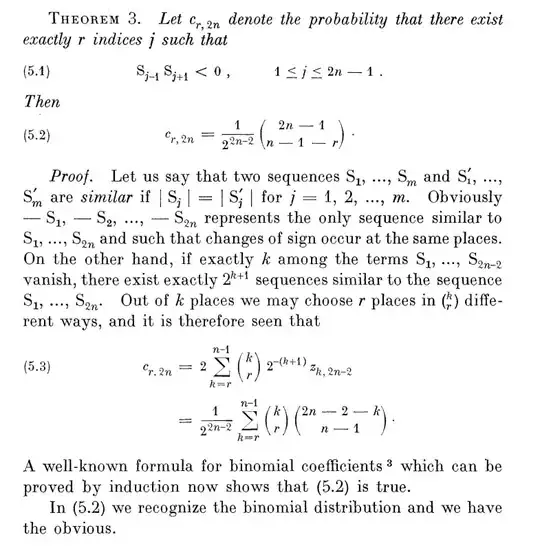This is an old paper by W.Feller.
It says that
$$ \sum_{k=r}^{n-1} \binom{k}{r}\binom{2n-2-k}{n-1} = \binom{2n-1}{n-1-r}$$
But I think, by Vandermonde's Identity, it's $\binom{2n-2}{n-1-r}$
Let $$p = k-r, then \sum_{p=0}^{n-1-r} \binom{k}{k-r}\binom{2n-2-k}{n-1-k} = \sum_{p=0}^{n-1-r} \binom{k}{p}\binom{2n-2-k}{(n-1-r)-p} = \binom{2n-2}{n-1-r}$$
Is it just a Typo or not?
